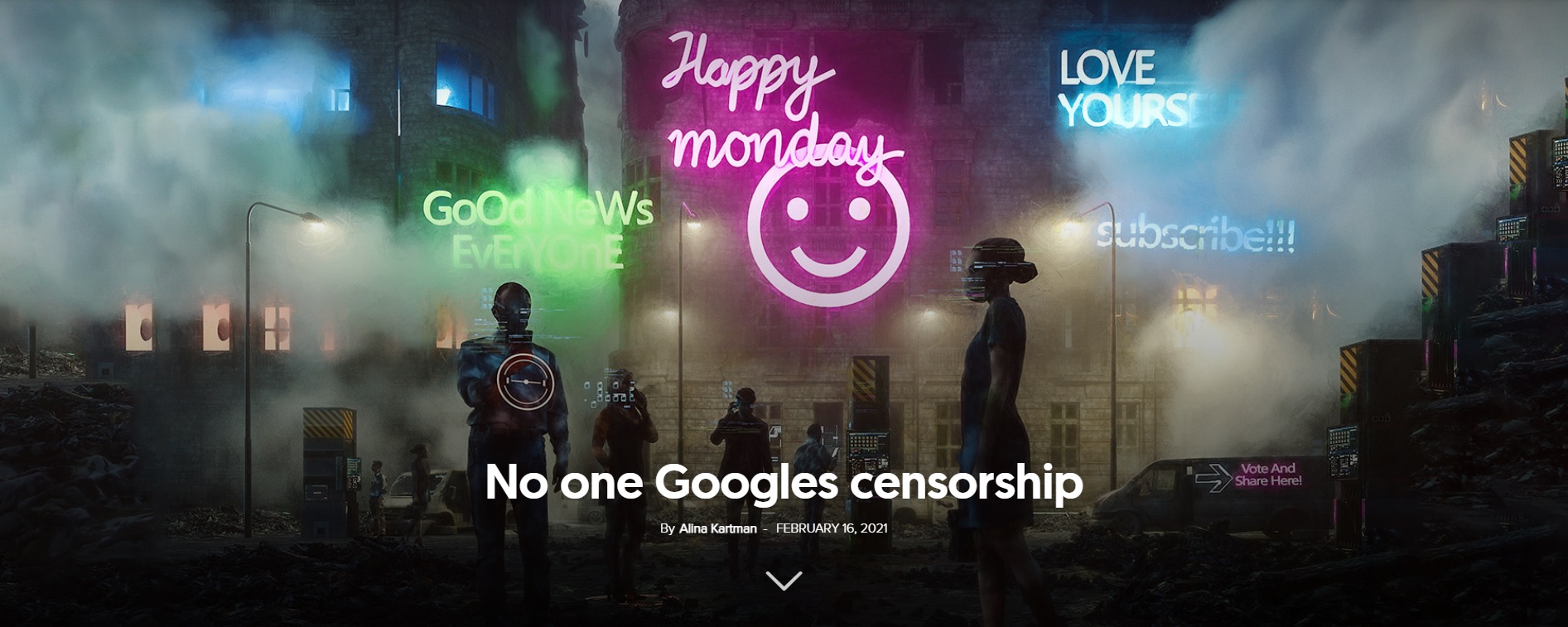We live in a world increasingly dominated by mergers and corporate consolidation.
On January 18, 2021, creators of Windows and the Xbox console, Microsoft, announced plans to buy Activision Blizzard King, the company behind many juggernaut gaming franchises like Call of Duty, World of Warcraft and Candy Crush Saga. The deal, should it go through in 2023 as planned, is valued at a historic price—just shy of $US70 billion. The news comes in the wake of a turbulent year for Activision Blizzard King, who spent much of last year embroiled in a variety of sexual harassment scandals including a lawsuit about the sexual misconduct and toxic workplace culture from the California Department of Fair Employment and Housing. Many see it as a way out of a difficult time for the tech giant currently lead by CEO Bobby Kotick (himself at the centre of the controversy).
On January 31, one of Microsoft’s main competitors in the gaming sphere, Sony Interactive Entertainment, announced their acquisition of the game developers Bungie, currently creating my personal gaming addiction Destiny 2, but perhaps best known for creating Microsoft’s flagship first-person-shooter series Halo (with the latest game in that series Halo Infinite being developed by an internal Microsoft studio known as 343 Industries).
And in news perhaps most relevant to the perpetually online and Twitter aficionados, James Wardle recently announced that his breakout web-browser puzzle game Wordle was purchased by The New York Times for a low seven figure sum.
This isn’t a phenomenon limited to the gaming industry though—even if the most notable news in the past few weeks has highlighted that sphere. Flashback to 2019 and all anybody in the entertainment industry could talk about was the Disney/Fox merger which eventually went through for the mindboggling cost of $US71 billion (technically 71.3 billion—a number so large that the rounding I did wipes off more money than I’ve ever seen in my life). In 2013, Verizon’s purchase of the Vodafone group cost an eye-watering $US130 billion. Even food companies aren’t exempt, with the 2015 merger of Heinz and Kraft rounding out to a smooth 100 billion.
Like it or not—and make no mistake, some do not—the companies that wield increasing power over our lives are only getting bigger and bigger.
But is this really a bad thing?
Complex economies
Business deals like these are, needless to say, a complicated beast. There’s a good reason that economics is an entire industry with its own nuances and experts. Deals like those previously mentioned are filled with complex negotiations and dozens of moving parts. Complicating this further is the way that those with money and capital can use it to spin facts or warp the information in order to attempt to convey their actions as good for people, the economy or any variety of things—even if it may not actually be the case.
I am not an economist; that needs to be said. My opinion on these mergers is not based on my nuanced and in-depth understanding of the implications that a merger like the Microsoft Activision or Disney/Fox one will have on the global markets. In fact, I’d go so far as to say that the vast majority of people do not understand all the elements in play.
This does not mean, however, that I am presenting an uninformed opinion—or that my perspective presented below is not based in reality. Part of my PhD research is dedicated to analysing the repercussions of a few large corporations controlling entire sections of the media, such as Amazon and Google’s monopoly on independent video streaming or Apple and Spotify’s control of large portions of the podcasting sphere. It turns out that many experts have already written on the state of corporate mergers past, present and future—something I have discovered while working on my PhD and reaffirmed researching this article. As a result, the information presented here will be linked where applicable and I encourage you to read it yourself.
The problems with mergers
Proponents of large mergers often speak to the fact that mergers work to create better value for consumers. Indeed, when the Disney-Fox merger was first being discussed, many were speaking about the way in which it would increase the content available on Disney’s streaming platform Disney+—hopefully requiring you to subscribe to one less platform in order to watch all the latest and greatest. Similarly, many are already salivating at the idea of big gaming franchises like Call of Duty being included on Microsoft’s game subscription service Game Pass at no extra cost.
How about another example? In the past 20 years the number of major airlines in America has halved thanks to corporate mergers. Research shows that these mergers have not had any significant effect on travel times (including delays) or lost baggage and in some areas have actually improved. So mergers are responsible for providing a better service, right?
Well, not so fast. It’s true that the flights themselves have remained as efficient as ever, but other aspects have taken a dive. Federal Communications Commission Chairwoman Jessica Rosenworcel has highlighted the numerous negatives present because of the airline mergers that have taken place. “A condensed airline industry brought us baggage fees and smaller seats, even as the price of fuel fell.” Indeed, research has shown that even after the Department of Justice moved to block more recent airline mergers, the damage done to ticket pricing had already occurred. Rosenworcel also notes the negative effects on the pharmaceutical industry, which many rightfully criticize today for focusing more on profits than easy and free access to the medicines necessary for many to survive.
Going back to the tech industry which prompted this article, it’s easy to notice that even as they grow bigger and bigger, companies like Netflix continue to pump up their subscription prices. The idea that mergers and corporate consolidation create the best deal for consumers is one which seems questionable at best when you take historic precedent into account—with the mentioned examples being just a few of many. Some benefits may indeed arise, but it is far from a clear-cut win for consumers as many would like to paint it.
Of course, it’s not all about the consumers. Many also argue that the success of big business and corporations, including in mergers, leads to better deals for the employees at all steps of the ladder. This is similar to the myth of trickle-down economics and once again it’s an idea which is less grounded in reality than its proponents would have us believe.
When it comes to mergers, the explanation is relatively simple: anywhere from tens to thousands of workers may end up losing their jobs due to redundancies and attempts to create a more efficient business. Writing on the AT&T and TimeWarner merger the Washington Post noted that while it indeed benefitted the business and its CEO (who received a $US400 million payout), the workers caught the short end of the stick, with 45,000 workers losing their jobs as a result of the transition; the article also cites numerous other examples where a merger was directly responsible for the loss of employment.
But the idea that the success of the business directly benefits its employees is also questionable when dealing with large monopolies. One only needs to look at the working conditions for employees at Amazon. The former CEO and executive chairman of the company, Jeff Bezos, is the third richest person in the world, but the company is known for its unforgiving and relentless working conditions. And while the company may pay workers $US15 an hour (the rate many say should be the minimum wage) it only shifted to this after it came under pressure from other lawmakers—and it’s been noted by academics Benedetta Brevini and Lukasz Swaitek that the raise in wages came alongside a loss of benefits such as stock rewards or monthly bonuses with some calculations stating that when this was taken into account workers stood to make less money.
Part of the reason these mergers have historically succeeded despite the negative effects is because of the American FTC’s standards for determining what constitutes a monopoly. The commission has historically been focused on using low consumer prices as the methodology for determining whether a deal classifies as anti-trust or not, something which many of these companies are aware of and attempt to make sure they appeal to. As Lina Khan writes in her award-winning work “Amazon’s Antitrust Paradox”, this is no longer sufficient to analyse whether these corporations have become monopolies and breached anti-trust.
There is a small light at the end of the tunnel. Khan is now a Commissioner for the FTC, and the FTC has recently announced a push to rewrite the merger guidelines, which many believe signals a potentially tougher stance on mergers like these. How strict these new guidelines may be remains to be seen, but for those critical of the state of things, they provide a glimmer of hope that the course may yet be changed.
Threading the needle
Unfortunately, despite all I’ve written—and that you’ve read—I fear my discussion of this culture of mergers and consolidation is incomplete. There is one question which remains on my mind which I cannot answer, no matter how much I might want to—and I feel that it’s the most important question of them all.
Why?
What drives the people in charge to pursue this goal of increasing profits, seizing a larger portion of the market share and controlling more aspects of our lives, even when they repeatedly provide little to no benefit to the consumers and workers they depend on for profit?
I could say it’s because of the increasingly materialistic perception of our culture, where wealth and money are viewed as the ideal we should reach for at any cost. Those in charge of these mergers are following the desire for more which everybody has, and the only thing that is different is the scale and impact of their actions.
I could say it’s the result of the systems that our societies are organised around, that capitalism is responsible for the myths that these types of practices benefit us, and that they are merely acting in service of these notions which may not actually work in practice.
I could say humanity’s flawed nature is to blame—that while we were made to be perfect, we are doomed to sin and act in our own self-interest while we live on this earth, and that those with power will always act in their self-interest regardless of how it affects others.
But if I was forced to explain why, the truthful answer is I don’t know. While I personally suspect the truth lies somewhere in a combination of the three answers I provided—alongside some other factors I have likely missed—to find out the real reason you’d have to interrogate those at the top of these business, and good luck getting a straight answer out of them. I’ll even admit, I’m not sure I wouldn’t be the same in their circumstances. It would be nice to not have to ever worry about the stress of money, of paying rent or making sure you have enough to spend on food (though I don’t think the exploitation of others is the way to achieve this).
So I don’t know the why. What I do know is that it’s not a path for long-term success.
In the Bible, there is a story about a rich young man who asked Jesus the burning question he had about what is necessary to attain eternal life. After confirming that he follows the Ten Commandments and asking Jesus what more he can do, the rich young ruler is told by Jesus’ response: “If you want to be perfect, go, sell your possessions and give to the poor, and you will have treasure in heaven. Then come, follow me.” Jesus continues stating: “I tell you, it is easier for a camel to go through the eye of a needle than for someone who is rich to enter the kingdom of God.” Tellingly, the young man’s response is to go away depressed, due to the amount of wealth he had.
This is just one of many stories where Jesus critiques the focus that many have on wealth and material possessions, but it’s the one that sticks with me the most. I wonder how Jesus might have responded to the wealth of someone like Jeff Bezos or Elon Musk who on a particularly good day have the potential to earn more than one billion dollars an hour. I wonder whether that level of great wealth is a hindrance more than a benefit. I know it’s hard for me to consider giving away all my savings at present (What if I lose my job, or need it for the hospital?), but I wonder how much harder it would be if I was on their level.
I wonder about a lot of things—but there is one thing that I remain certain of. When it comes to focus, I’m going to try keep my eyes glued on the people who need me and making sure my good deeds benefit them, as that’s what’s most important.
Ryan Stanton is a PhD graduate of media and communications at the University of Sydney. He’s a passionate follower of Jesus, avid board gamer and admirer of science fiction. A version of this article first appeared on the Signs of the Times Australia/New Zealand website and is republished with permission.



















